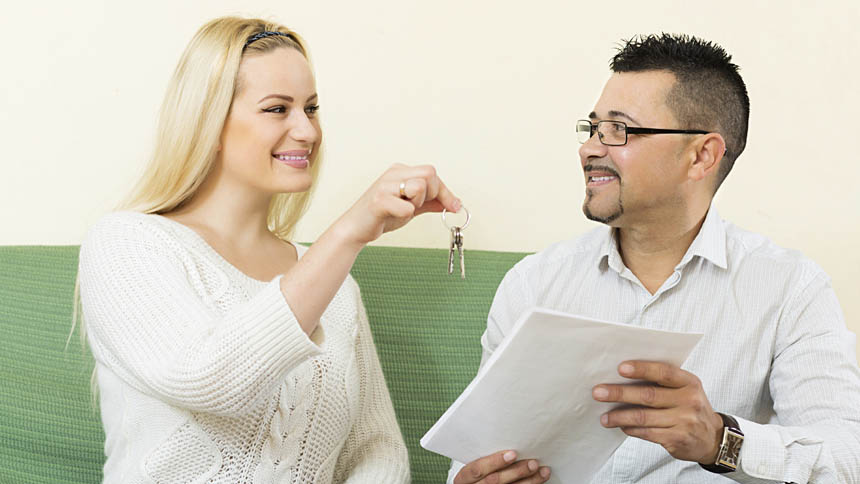Considerations when switching your home to a buy-to-let
Using your current home as a buy-to-let property sounds an attractive idea but before you move ahead with your plans, here are some things you may like to take into consideration.
Make sure you're allowed to rent out your present home
Check the details of your current mortgage agreement that you're allowed to rent out your present property. Many mortgages have a clause forbidding you to do this. Check with your mortgage provider before proceeding further with your plans.
Would you get enough rent to cover the current mortgage?
Typically, the projected rental income needs to be at least 125% of the current mortgage payments. For instance, if your mortgage payments were £400 a month, projected rental income should be £500 a month. This projected monthly rent needs to be calculated by a professional valuer and not yourself. Also take into consideration the maintenance costs involved with renting out your home. Make sure you can afford to finance and maintain two properties at the same time.
Changing your mortgage contract
With the help of your mortgage provider, you will need to convert your current mortgage to a buy-to-let mortgage. You may be able to get an interest only buy-to-let mortgage. You can also ask about let-to-buy mortgages. These are for homeowners who have a certain amount of equity in their present property. It allows money to be released from your present home to put down a deposit for a new property whilst letting out your present home.
Insurance
If you're renting out your home, your present standard homeowner’s insurance may not cover any damages that occur while being a landlord. You, almost certainly, will need to take out a landlord's insurance policy. These, in general, cost about 25% more than a standard homeowner’s policy. The majority of landlord policies also provide coverage against situations such as you being unable to rent out a property when maintenance is taking place. If you're only renting out one property and not running a property business then you shouldn't have to pay national insurance. However, again, it's always best to check with HMRC since if it does count as a business, you have to pay Class 2 national insurance.
Becoming a landlord
 Apart from the financial considerations, remember you'll have to deal with the responsibilities that come with being a landlord. This includes always maintaining the property to a high standard. Depending on your tenants, it can also be emotionally challenging at times and something you need to be fully prepared for.
Apart from the financial considerations, remember you'll have to deal with the responsibilities that come with being a landlord. This includes always maintaining the property to a high standard. Depending on your tenants, it can also be emotionally challenging at times and something you need to be fully prepared for.
Taxes
One other major consideration is extra tax and taxes you could be liable for. One of the first things you need to do when considering renting out your home is to contact HM Revenue and Customs (HMRC). By renting out a property you may be liable for new and/or additional tax obligations. By failing to pay that tax, you could then be liable for a fine or worse.
You pay tax on any profit made from renting out a property. How much tax you pay depends on your particular circumstances. Everything is taken into account including other income you receive outside of rental income. Regardless of how much or how little rental income is generated, you have to inform HMRC of the amount you make from rental income usually through a self-assessment tax form.
An example of tax calculations in relation to rental income
In order to calculate the tax due, it's first necessary to calculate the rental profit you make. This is done in the following way:
| Annual rental income | £14,000 |
| Allowable rental expenses | (£1,500) |
| (Taxable) rental profit | £12,500 |
Personal allowance deductions If you have a personal tax allowance of £10,600 (the amount you can earn before you're liable for tax) then:
| Rental profit | £12,500 |
| Personal tax allowance | (£10,600) |
| (Total taxable rental profit | £1,900 |
If your basic rate income tax is 20% then:
| Taxable rent profit | £1,900 |
| 20% income tax rate | (£380) |
| Net rental profit after tax | £1,520 |
Income from other sources will also be taken into consideration if applicable and each person's individual circumstances will, naturally, be different. It's why HMRC should be your first point of contact regarding tax and rental income. It's also recommended to seek the advice of an independent financial advisor.